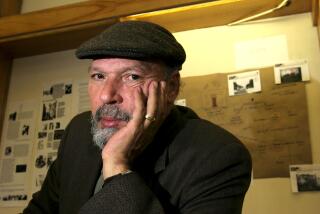Forgotten Treasures: A Symposium
- Share via
The Civil War lives within the American imagination as a chief shaper of our cultural and social identities. The North, victors in what had become total war waged against an entire society, emerged as a giant of the new industrial world culture. The South survived as the one part of the country to have experienced conquest and defeat. To that war, and to the cultures it would transform, there is no surer guide than Edmund Wilson’s “Patriotic Gore: Studies in the Literature of the Civil War.”
Wilson uses the word “literature” to embrace a wide range of expression--the responses to the war of our major artists, Melville, Whitman, Hawthorne, Twain; a host of genuine if lesser artists like Lanier and Cable; diarists and songwriters; the memoirs of Union and Confederate generals and politicians, of slave-owners and abolitionists, novelists and writers of patriotic romances; the recollections of citizens whose loyalties and subversions are less easily named. Only one segment is underrepresented--the African-Americans whose enslaved condition was, after all, what the war was all about. Perhaps. Historians are still arguing the point.
In one sense, Wilson was ahead of his time: like some current historicists, he excludes nothing which provides him, and us, imaginative insight into the conflict. But unlike them, he knows and honors high literature and distinguishes it from low. To get to the low, he hauls from the dustbin such popular romancers as Thomas Nelson Page; to honor the high, he writes with eloquence about Abraham Lincoln’s prose and the perplexed and perplexing figures of Melville and Bierce.
Edmund Wilson was himself a figure of consequence in the history of American culture--a belated Atlantic seaboard aristocrat, well-read beyond the farthest shores of erudition, cantankerous, companionable, rock-solid in a shaking world. His college friend, F. Scott Fitzgerald, called him his “literary conscience.” We all should.
More to Read
Sign up for our Book Club newsletter
Get the latest news, events and more from the Los Angeles Times Book Club, and help us get L.A. reading and talking.
You may occasionally receive promotional content from the Los Angeles Times.









